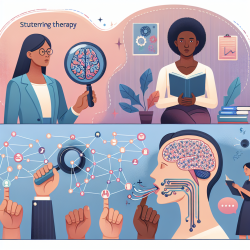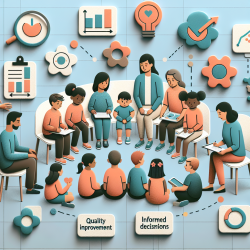As a practitioner dedicated to improving the lives of children with autism spectrum disorders (ASDs), staying informed about the latest research and evidence-based practices is crucial. One such promising intervention is Rational-Emotive Language Education (RELE), which has shown significant improvements in the communication and social skills of adolescents with ASDs. This blog will delve into the findings from a recent study conducted in Nigeria and offer actionable insights for practitioners.
Understanding the Study
The study, titled Using rational-emotive language education to improve communication and social skills of adolescents with autism spectrum disorders in Nigeria, investigated the effects of RELE on 68 adolescents with ASDs. Participants were divided into a treatment group and a waitlist control group. The treatment group underwent a 12-week RELE program, while the control group received no intervention during this period.
Key Findings
- Adolescents in the treatment group showed significant improvements in communication and social skills compared to the control group.
- The RELE program effectively addressed cognitive, communicative, emotional, social, and behavioral aspects that impair communication and social interactions.
- Participants learned to replace harmful thoughts and beliefs with rational, fact-based, and scientifically accurate ones.
Implications for Practitioners
The study's findings suggest that RELE can be a valuable tool for practitioners working with adolescents with ASDs. Here are some actionable steps:
- Training: Professionals such as language educators, speech pathologists, and special educators should receive training on RELE techniques.
- Family Involvement: Involve family members in the intervention to enhance communication and social skills at home.
- Holistic Approach: Address cognitive, emotional, social, and behavioral dimensions to improve overall communication skills.
Encouraging Further Research
While the study provides compelling evidence for the effectiveness of RELE, it also highlights the need for further research. Future studies should aim to include larger sample sizes and explore the application of RELE in different cultural contexts and with other aspects of ASDs.
To read the original research paper, please follow this link: Using rational-emotive language education to improve communication and social skills of adolescents with autism spectrum disorders in Nigeria.










